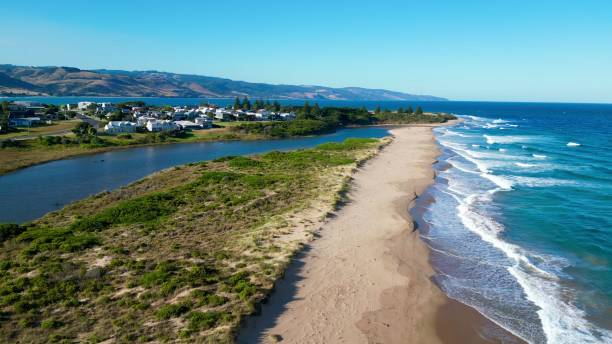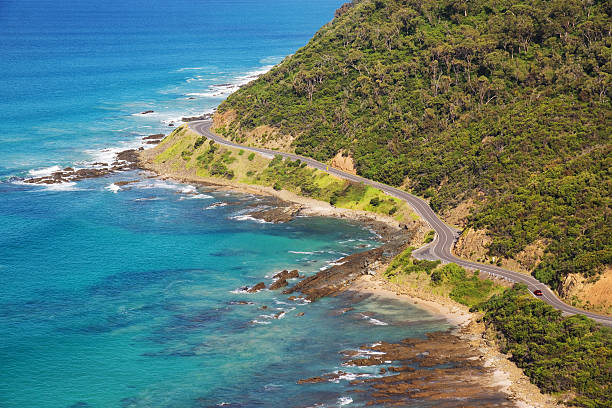When it comes to taking the quintessential Australian road trip, the Great Ocean Road often tops the list. Winding along the picturesque coastline of Victoria, this historic route offers sweeping ocean vistas and access to some of the country’s most iconic landmarks. But just how long does this great ocean road trip take? The answer is not straightforward; it varies depending on whether you’re up for a marathon drive or a leisurely journey with stops to soak in the breathtaking scenery. The route can be completed in a single day or over several, depending on one’s pace and intention to explore.
Planning Your Great Ocean Road Adventure

The first step in planning your great ocean road trip is to evaluate how much time you can spare. Are you on a tight schedule or do you have the luxury to wander at will? For a drive that includes key attractions without feeling rushed, allocate at least 2 to 3 days. If you’re on a short trip or local looking for a weekend getaway, a condensed version is possible, but this will require strategic planning to ensure you see the essentials.
Spanning approximately 243 kilometers, the Great Ocean Road starts at Torquay and ends at Allansford. Along the way, it skirts the coast, offering views of the Southern Ocean and passes through rainforests, national parks, and quaint coastal towns. Signature landmarks such as the Twelve Apostles, Bells Beach, and the historic Cape Otway Lightstation are just a few of the highlights that invite travelers to linger.
The Ideal Great Ocean Road Itinerary

Should you be pressed for time, the Great Ocean Road can technically be driven non-stop in about 9.5 hours, given good traffic and weather conditions. However, this allows for little more than the drive itself. With speed limits averaging 80 km/h and taking into consideration the winding nature of the road, it’s crucial to prioritize safety over speed.
The Standard Journey: A Comfortable Pace
For those who have a bit more leeway, a 2-3 day journey is advised. This enables you to comfortably navigate the scenic route with ample stops. Each day could entail roughly four to six hours of driving, interspersed with visits to key sights, meal breaks, and opportunities to simply breathe in the ocean air.
Here is an example of a standard two-day itinerary:
- Day 1: Start at Torquay, explore surf culture at Bells Beach, then on to the seaside town of Lorne for lunch, and finish at Apollo Bay.
- Day 2: Depart Apollo Bay, walk among the ancient rainforest in Great Otway National Park, be awed by the Twelve Apostles, and finish your journey near Port Campbell or Allansford.
The Extended Experience: Savoring the Sights
For the ultimate great ocean road trip experience, extend your drive to five days or more. This will give you the chance to delve deeper into the local culture, spend more time at each landmark, and discover hidden gems. Take guided tours, enjoy the local gastronomy, and even try your hand at activities like surfing or bushwalking.
Tips for a Memorable Great Ocean Road Trip
Whether you choose a fast-track or a slow-paced journey, certain tips can enhance your road trip. Firstly, consider the time of year – spring and autumn offer mild weather and fewer crowds. Additionally, driving during the week can help avoid weekend traffic. Remember to plan your stops in advance, keeping an eye out for wildlife and scenic lookouts, and always keep a camera at hand for those impromptu snapshots.
Accommodations and Overnight Stays
The Great Ocean Road offers a diverse array of accommodations, keeping in tune with the varied experiences of its travelers. From luxury resorts to cozy bed and breakfasts, choosing the right place to stay can be crucial to your overall trip enjoyment. To assist you, we’ve compiled a practical table highlighting accommodation options to suit every preference and budget.
| Accommodation Type | Location | Price Range |
|---|---|---|
| Luxury Hotel | Port Campbell | $$$ |
| Budget Hostel | Apollo Bay | $ |
| Bed & Breakfast | Lorne | $$ |
| Caravan Park/Campsite | Torquay | $ |
Alternatives to Driving Yourself
If driving isn’t your preference, worry not, as there are alternatives. Taking a guided bus tour can be an excellent way to enjoy the sights without the stress of navigating. These tours typically include knowledgeable guides and planned itineraries. For those more adventurous, renting a bike or even hiking sections of the road are thrilling ways to engage with the landscape.
Conclusion
Embarking on a great ocean road trip is more than just a means to an end; it’s an opportunity to make lifelong memories against a backdrop of staggering natural beauty. While the length of time it takes to drive the Great Ocean Road can vary from less than a day to a week or more, the journey you choose should reflect your personal pace and the depth of experience you seek. No matter how long you spend, this coastal journey promises a blend of adventure, relaxation, and awe-inspiring landscapes that will leave an indelible mark on your heart.
FAQs: Your Great Ocean Road Drive
Q1: Can I drive the Great Ocean Road in one day?
A1: Yes, it’s possible to drive the Great Ocean Road in a single day. However, to truly appreciate the route, it’s recommended to take a minimum of 2-3 days so you can explore and enjoy the scenery.
Q2: What is the best time of year to drive the Great Ocean Road?
A2: The optimal times to embark on a great ocean road trip are during the shoulder seasons – spring (September to November) and autumn (March to May). These periods offer milder weather and smaller crowds.
Q3: Are there specific attractions I should make time for on the Great Ocean Road?
A3: Absolutely. Highlights include the Twelve Apostles, Bells Beach, and the Cape Otway Lightstation, along with the rainforest walks and waterfalls in the Great Otway National Park.
Q4: Is it safe to drive the Great Ocean Road?
A4: Driving the Great Ocean Road is safe when you adhere to speed limits, drive according to weather conditions, and take regular breaks on this winding route.
Q5: Can I find accommodations along the Great Ocean Road without booking in advance?
A5: While it’s possible, it’s advisable to book accommodations in advance, particularly during peak seasons, to ensure you have a place to stay that suits your preferences.
